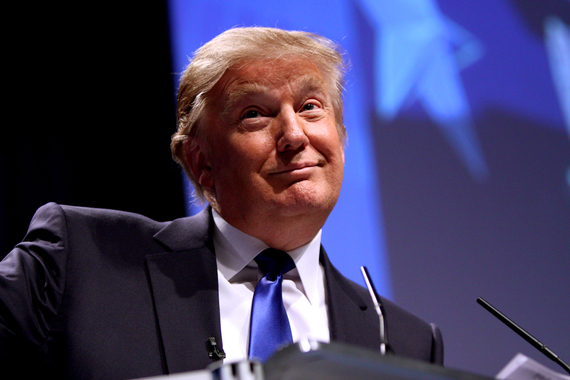
New York is America's wealthiest city. But it is also one of America's most unequal. For every town car on Madison Avenue, there is a single mother struggling to pay for milk in the Bronx. For every sleek, palatial apartment that rises above Central Park, there are doormen who cannot afford health insurance. New York is home to Donald Trump, David Koch and Michael Bloomberg. And it is also home to Burger King employees who make $15,002 a year, hardworking maids earning minimum wage and homeless New Yorkers who have no choice but to sleep on the sidewalk of 5th Avenue.
Enter Bill de Blasio. In his campaign for Mayor, de Blasio recognized that this pernicious inequality imperiled the social fabric, cohesion and intergenerational mobility of America's biggest city. His responded to this crisis with an audacious proposal: universal pre-school funded by a .5 percent increase in marginal taxes on the wealthiest New Yorkers. And once the campaign ended, he delivered on part of his campaign promise. Thanks to de Blasio, over 50,000 four year olds went to pre-school this September. 20,000 more will start in September 2015. Parents, social scientists, teachers and kids love the pre-kindergarten program.
Yet the rich also love the program. After a public and contentious battle with Governor Cuomo last spring, de Blasio agreed to fund his signature initiative with $300 million from the State of the New York. Meaning: no new taxes on the wealthy. The richest 40,000 New Yorkers never saw their top marginal rate rise from 3.9 percent to 4.4 percent. Millionaires and billionaires, who had denounced de Blasio's original tax proposal as an "offensive," "absurd" and "Soviet" form of "eugenics," celebrated. (Note to the 1 percent: comparisons between progressive taxes and totalitarianism are getting a little tired).
The de Blasio Administration has recently pivoted to other vital policy priorities, notably affordable housing and criminal justice reform. Yet the Administration should not concede on fighting for fair taxation. Indeed, progressive taxes in New York are needed now more than ever.
America's income inequality problem pales in comparison to that of New York. In 1980, the wealthiest 1 percent of New Yorkers took home 12 percent of the city's income; in 2012, the top 1 percent garnered around 40 percent of the city's income. Last month, the Census found that no other county in America had a larger income gulf than Manhattan, where the richest 5 percent garnered incomes 88 times greater than the bottom 20 percent. New York City's Gini Coefficient (a measure of inequality) is higher than those of the United States, Hong Kong Zambia and Mexico. As succinctly phrased by Institute for Policy Studies, New York "has become the most unequal major city of the world's most unequal major nation."
Conservatives claim Mayor de Blasio wants to redistribute income. Yet unregulated market forces are already redistributing income in New York, as wealth trickles up from the middle and working class to the rich. Consider a recent report from the Fiscal Policy Institute. From 2000 to 2010, "the median income of the city's eight wealthiest neighborhoods jumped 55 percent," as the median income declined "3 percent in middle-income areas and 0.2 percent in the poorest neighborhoods." According to the CUNY Graduate Center, the median income over the past 20 years of the top 1 percent of New Yorkers skyrocketed from $452,415 to $716,625, an increase of nearly 60 percent. The top decile also thrived; their median household incomes climbed from $205,193 to $262,010, growth of around 30 percent. But the bottom ten percent of New Yorkers were shut out of this prosperity. Their incomes rose at a rate slower than inflation, inching up to $9,455 from $8,468. And an annual income of $9,455 is simply insufficient to cover basic human needs and raise a family in New York City.
Conservatives will counter that progressive taxes would hamper economic growth, disincentive private investment and incite a mass exodus of town cars and their Birkin bag-toting passengers from the Big Apple. No, no and no. As noted by Standard and Poor's, United States income inequality hampers growth by "discouraging trade, investment and hiring" and by limiting social mobility and the development of a highly educated workforce. You don't need an economist at S&P to understand a basic truth: to grow the economy, we must reduce income inequality. And reasonable progressive taxes and transfers have a long, successful track record in reducing wealth disparities. Ultimately, Mayor de Blasio's original proposal is modest. Rich New Yorkers paid higher marginal tax rates (4.46 percent and 4.45 percent) under two recent Mayors (David Dinkins and Michael Bloomberg) than they would under the proposal. And evidence that the affluent will depart en masse is scant, at best.
Increasing marginal tax rates on the richest New Yorkers is an effective, direct and symbolic way to combat inequality. The Mayor should also supplement this change with a tax pied-à-terre surcharge on second homes in New York City valued at over $5 million, which would ensure non-New Yorkers who use municipal services contribute to the city. Because of archaic budget rules, de Blasio must get Albany's blessing before implementing a fair taxation system. He should not give up in getting this approval. The Speaker of the New York Assembly, a strong majority of voters, even some upstate Republicans favor letting New York City raise taxes on New York City residents. Mayor's Mayor de Blasio won with a mandate to fight inequality, and he should spend his political capital.